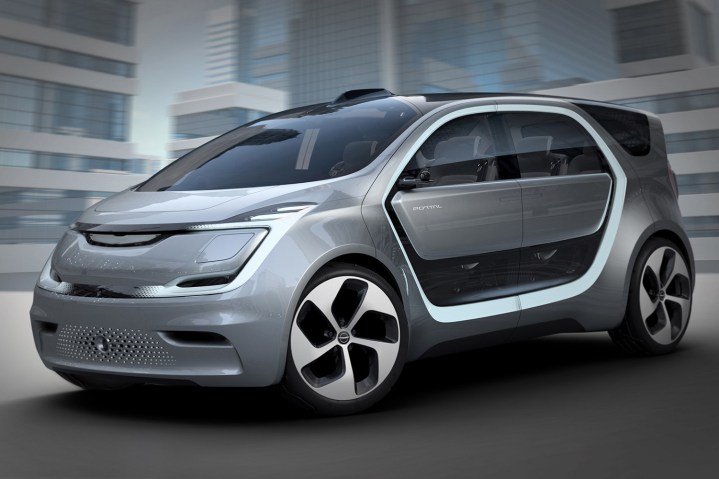
Despite top billing in the name of parent Fiat Chrysler Automobiles, the Chrysler brand’s future is uncertain. Chrysler only sells two cars in the United States, and plans for future models are hazy. But FCA may have a plan for Chrysler, and it may involve shifting the historic brand to focus on shared vehicles, reports Autocar.
Chrysler didn’t warrant a mention in FCA’s new five-year plan, which primarily focused on Jeep, Ram, and the automaker’s Italian brands. But Waymo recently announced that it would buy up to 62,000 Chrysler Pacifica Hybrid minivans (it already has 600) for conversion into self-driving cars. This could be the future direction of the Chrysler brand.
“The minivan business space will be filled by Chrysler, filling the mobility solution in the U.S. market,” FCA CEO Sergio Marchionne told Autocar. The magazine also reported that Chrysler is slated to get one new model, either a second minivan or an SUV.
Besides the Pacifica, the only other model Chrysler currently sells in the U.S. is the 300, a big sedan based on the same platform as the Dodge Charger and Challenger. But while the two Dodges are due for some form of update, Marchionne has indicated the 300 may soon be nixed. Even if the 300 does stick around, the full-size sedan segment isn’t exactly a growth market.
It’s not inconceivable that Chrysler could survive primarily as a provider of vehicles for mobility services. Minivans like the Pacifica are well suited to these types of services, since they can carry lots of people. Note that when Volkswagen’s MOIA mobility brand set out to design a vehicle purpose built for ridesharing services, it chose a minivan design.
If self-driving cars live up to the hype, private car ownership may also decrease. Providing vehicles to companies like Waymo, Uber, and Lyft may become the primary focus for automakers in a world where most people use shared autonomous vehicles instead of their own cars. FCA could use Chrysler to cater to these services, while using more emotionally resonant brands like Dodge, Alfa Romeo, and Maserati to target any customers who still want to drive.
We’ve already seen a preview of this future. The Chrysler Portal concept (pictured above) that debuted at CES 2017 was an autonomous minivan with an elaborate, tech-infused interior. It would be perfect for a future ridesharing service.
Editors' Recommendations
- Cruise’s robotaxi service suspended by California regulator
- Cruise autonomous vehicle drives over woman just after she was hit by another car
- Waymo taps the brakes on its autonomous-trucking project
- Elon Musk eyes 2024 for Tesla robotaxi sans steering wheel, pedals
- Tesla issues stark warning to drivers using its Full Self-Driving mode


